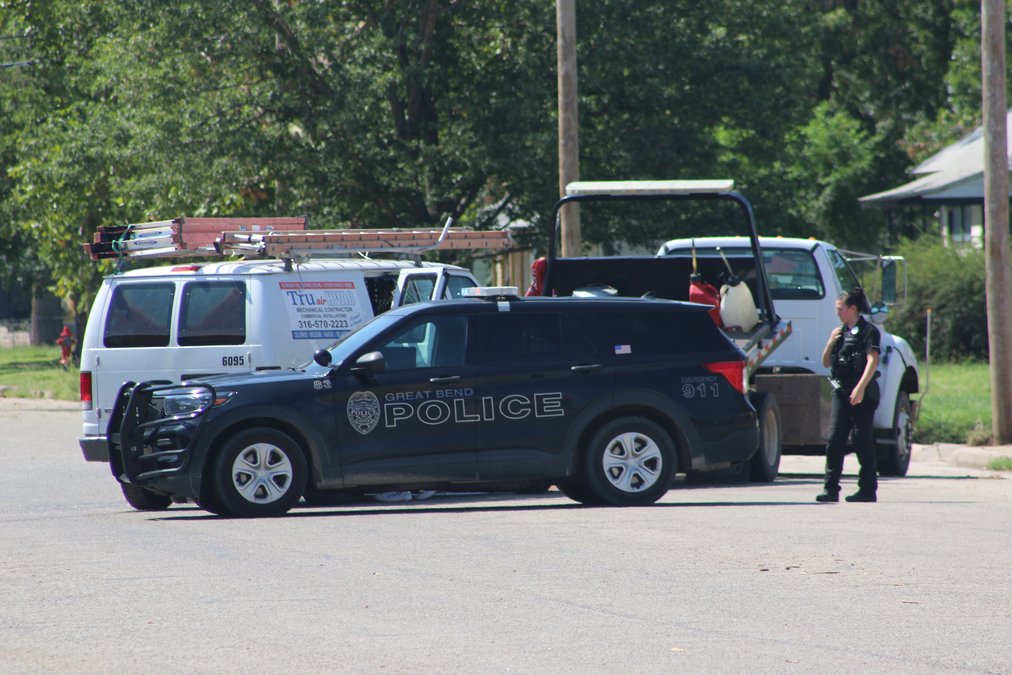Although Great Bend City Council members remain in the learning stages, they felt there was some merit in a proposal to lease at a portion of the city’s rolling stock from Enterprise Fleet Management. That was the consensus following an hour-long work session Monday night to hear the sales pitch from Enterprise’s Ken Olsen.
“It’s certainly something I’ve also looked at this in another city that I’ve been in,” said City Administrator Brandon Anderson. “(That community) chose not to go this path. But it is certainly something I think is worthy of a look.”
He said city administration and staff have studied the idea internally for a couple of months. Discussions have included department heads who manage their own fleet vehicles, some of whom like the idea and some of whom remain skeptical.
“It seems efficient,” said Ward 2 Councilman Kevyn Soupiset. “I think it is something we should strongly consider.”
“I’m interested in it,” said Ward 2 Councilwoman Jolene Biggs. But she suggested a cautious approach. Maybe it shouldn’t be “full-blown” and be implemented in only certain departments.
Others on the council remained unconvinced.
There is no all-or-none, nor one-size-fits-all model for such programs, and there are a variety of options, Olsen said. “It can be customized. It’s very organic.”
The city operates 98 vehicles with an average age of 15 years. Of those, 35 are over 20 years old, with the oldest being a 1978 GMC used by the Public Lands Department.
The idea of leasing would be to make the fleet newer overall, save on repair costs and keep the fleet more up to day, Olsen said.
The city could chose its entire fleet or just a few vehicles, say the Police Department or Fire Department, he said.
Police Chief Steve Haulmark said he encountered a similar system when he was in Kansas City, Kan. “I’m a big advocate for it.”
But, Public Lands Director Scott Keeler wasn’t so sure. Their trucks are used hard, and he was concerned of the reduction in trade-in values.
Keeping vehicles going is a matter of pride for city mechanics, Keeler said.
There were worries about leaving local dealers out of the loop.
Olsen said Enterprise can handle the maintenance or work with local dealerships. Also, while the vehicles would come from Enterprises inventories, not local dealers, the local businesses would receive a courtesy fee for handling the deliveries.
That was something Olsen touched on, noting that by trading vehicles off sooner, the city would save in the long run because they would hold more value.
“What ever you land on is going to be a change from a financial prospective,” he said. Also, “it’s a massive change in philosophy from what you guys are doing now.”
“We’re still in the learning process,” Anderson said. He wasn’t making a recommendation one way or the other, he just wanted keep the council informed.
“We’re always going to need a fleet. We’re always going to need vehicles,” he said. He brought it up so the council could “wrap their heads around” the idea and noted that perhaps another work session would be in order.
It was suggested that administration bring the issue up one-on-one with each department head to more input.





